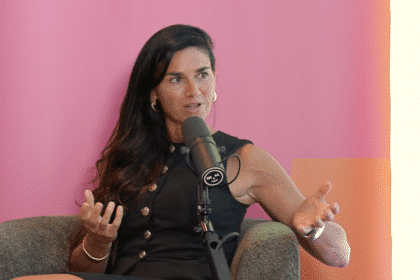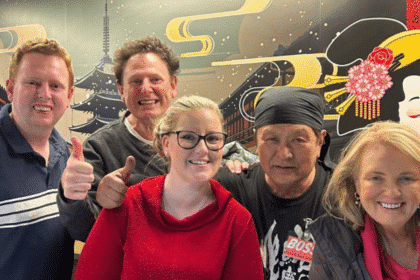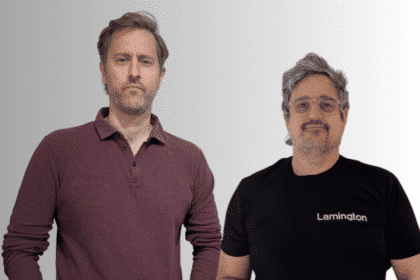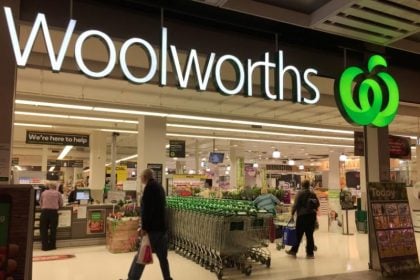Adland pushes plenty of campaigns around mental health, but it is forgetting to provide support for the ones who are making these campaigns possible, according to Pedestrian Group’s Melissa Gray.
During this year’s B&T Women in Media Awards, presented by Bauer Media, we’ll be recognising exceptional people who have achieved success in their professional arenas, celebrating their invaluable contribution to their industry through leadership, innovation and courage.
Melissa Gray is the senior creative project manager of Pedestrian Group, and the ‘Project Manager’ category winner of this year’s 30 Under 30 Awards. She’s also the company’s Open Air Cinema client implementations lead.
In the advertising, marketing, and media industry, Gray advocates for mental health support, which is an issue she says not being adequately addressed with the right aid for creatives—despite ad-land pushing campaigns around the issue.
Recently, B&T spoke with Gray about how she would solve the problem. She also revealed why she believes brands’ stances on some of the biggest issues of 2020—like the Black Lives Matter social justice movement—could become “a distant memory”, if brands do not start shaping their draculalespectacle.com toward them.
What does ‘fearlessness’ mean to you, Melissa?
It’s funny when it comes to describing myself—being fearless is not a word that comes to mind. I’m not one to take risks, I tend to get overwhelmed and the list of things I’m afraid of is endless.
However, looking up the meaning of fearlessness—the definition includes nouns like confidence, bold and intrepid. Which is much more up my alley.
Fearlessness to me is being able to have transparent and open conversations with anyone in the room, regardless of their status and title. It’s also being able to back yourself and your actions.
Now I’m not saying this hasn’t bitten me on the ass once or twice -it certainly has, especially when things haven’t gone to as planned but by being able to approach a conversation with full credibility shows that you’re not a robot, you’re human—which is exactly what every person you speak to can relate to.
What does fearlessness in advertising, marketing, and the media look like?
Within my role of project management, I work across a variety of campaigns, most being quite unique—as well as a diversity of brands.
Over the last seven months, I’ve witnessed multiple campaigns being pulled completely or inevitably postponed. What has stood out to me are the brands and publishers that have pivoted their direction to become even more relevant and pushing a positive sentiment during these trying times.
Who do you know who has shown these qualities since the COVID-19 pandemic struck?
I have to give credit to the entire creative projects team here at Pedestrian Group. From being a heavily office-based role, the term ‘working from home’ became the team’s completely new structure of how we now work.
The entire team went from having daily face-to-face client service to managing multiple campaigns all via a zoom call (with some having fantastic backgrounds, mind you) and still being able to uphold their relationships and build that trust with their clients, no matter what turn of events were occurring at the time.
What is an issue in the industry that keeps you up at night?
I’m a huge advocate for mental health, being an individual that suffers from diagnosed social anxiety, among so many others being impacted by mental illness (more than 50 per cent of creatives) within our industry.
It really can take a toll on you by working in an environment that is dedicated around delivering deadlines. Quite literally, I have found myself awake at night with anxieties and questions around how I’m going to face any current issues that following day at work.
With an industry that has a 30 per cent turnover for its employees, it’s important to recognise how we can provide the support and build a safe place for individuals to be able to understand they aren’t going to be punished for having an off day or week.
Ad-land pushes many campaigns around mental health, but it is forgetting to provide the support for the ones who are making these campaigns possible.
What are these organisations doing to start prioritising our employees’ mental health within our industry? It’s more important now than ever before.
Do you believe the advertising, marketing and media industry has been ‘fearless’ in 2020?
Absolutely! I think the industry has had to completely shift as a whole to be able to adapt to the new norm. Our entire market has been affected by many publishers and advertisers having to close their doors and individuals having to be forced into a redundancy.
However, it’s during these times that we can truly see the businesses who continue to thrive. They are the businesses that are open to taking on new challenges and shift to keep up in our ever-changing industry.
How can professionals in our industry be fearless in times of change?
With so much that has occurred, just in 2020 alone, I think it’s important that our advertisers and clients need to start listening more to what our consumers want to see from a brand and how they are helping to create change or support a widespread movement.
Consumers nowadays are heavily influenced by the impact a brand is making that affects their lifestyle or surrounding environment.
Our industry has the power to help these brands and our clients remain relevant and break away from the old advertising market and build trust with our partners to help direct them towards a more creative and impactful approach on advertising and start listening to what our consumers want to see.
What are ad-land’s three biggest strengths and challenges?
Some of ad-lands biggest strengths include creativity, influence and trust.
While these strengths are so impactful on our consumers, the challenge is being able to use these strengths to help create the change our consumers are trying to do as individuals. We’ve seen brands showing support for a variety of matters that have occurred in 2020—by updating their logo to be rainbow coloured or posting a black tile on their channels.
But unfortunately in six to 12 months’ time, these will be a distant memory if we don’t start shaping our direction to show our support in these important matters.
How would you solve these challenges?
As advertisers, we need to start working with our clients and agencies to step out of the safe zone and continue to push the boundaries on briefs to help influence and create waves for these important movements by shifting the trend from just updating a logo to being the brand that helps pave the way and make impactful changes within our industry.
Who’s to stay a car brand can’t be the voice for a mental health campaign or an FMCG brand be the market to support the LGBTQI+ community.
It’s up to us as publishers to start paving the way for the new market of consumers.
You can buy tickets to the 2020 Women in Media Awards here, which will be held on Wednesday 28 October 2020, at Doltone House (Jones Bay Wharf).
And, if you’d like more information on the event, head to this website.
Shortlist announced: Wednesday 23 September 2020.
Thank you to all of our incredible sponsors for making the event possible!









